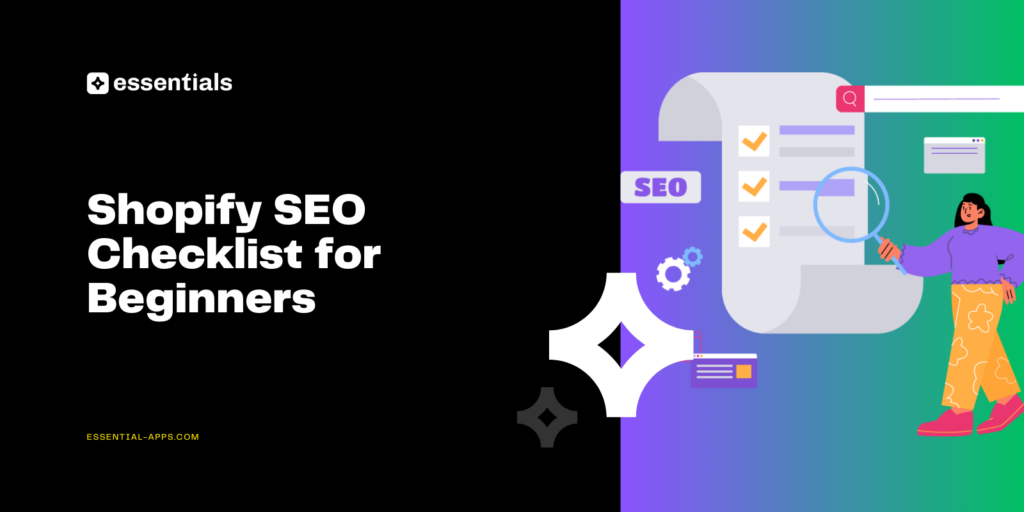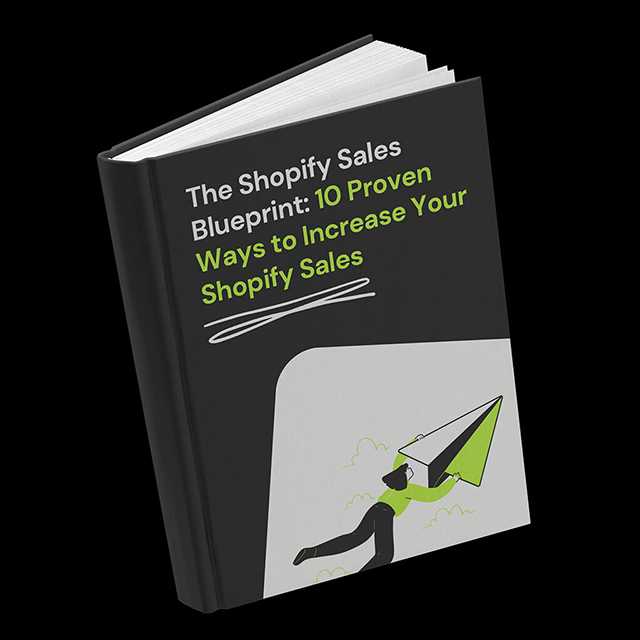Search Engine Optimization (SEO) is a crucial element of digital marketing, especially for e-commerce platforms like Shopify. By optimizing your website, you can significantly enhance its visibility in search engine results, making it easier for potential customers to find you. In this article, we’ll share essential Shopify SEO steps designed specifically for beginners, including a practical Shopify SEO checklist for beginners to help you rank higher, attract more organic traffic, and improve the quality of your visitors. With effective Shopify SEO tips, you’ll increase your chances of conversions and build credibility, allowing customers to trust and purchase your products.
The Critical Role of SEO in E-Commerce
SEO is an indispensable element of any e-commerce strategy. In today’s digital age where online shopping dominates, a well-optimized website is crucial for standing out in a sea of competitors. Studies have shown that 93% of online experiences begin with a search engine, highlighting the importance of ranking high on SERPs. By optimizing your Shopify site using our effective SEO tips, you not only enhance visibility to potential customers actively searching for your products but also boost your site’s organic traffic.
Google’s algorithm considers over 200 factors when ranking sites, underscoring the complexity and necessity of a robust SEO strategy. It’s been proven that the first five organic results account for 67.60% of all clicks. Thus, higher rankings do not just lead to increased clicks and traffic; they also enhance brand credibility and authority.
Moreover, SEO’s impact extends to conversion rates. A study by BrightEdge revealed that organic search drives 53% of all website traffic, making it a vital component for long-term e-commerce success. For Shopify SEO beginners, a comprehensive checklist can be an invaluable tool. Remember, SEO is not an option but a fundamental requirement for any business aspiring to thrive in the competitive online marketplace.
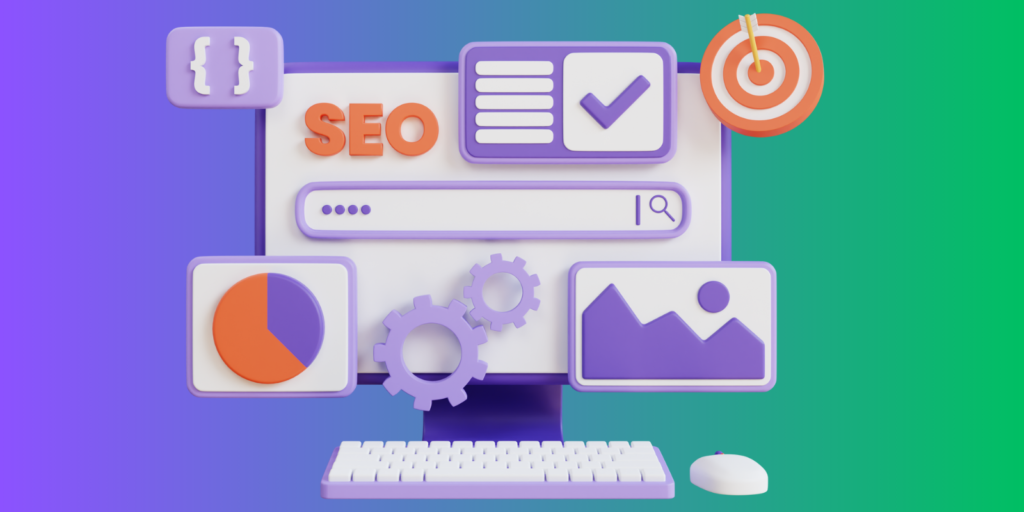
Shopify SEO Basics
For Shopify SEO beginners, understanding Shopify SEO basics is crucial for boosting organic traffic to your site. To start, focus on optimizing your page meta titles, descriptions, and URLs.
Page titles are a key ranking factor and should be concise, descriptive, and include your primary keywords. According to Moz, a leading SEO authority, titles that are 50-60 characters long tend to perform best, as they are fully displayed in search engine results.
Meta descriptions, while not a direct ranking factor, significantly impact click-through rates. A well-crafted meta description briefly summarizes your page’s content and persuades users to click on your link. Pages with compelling meta descriptions tend to have higher click-through rates.
URLs should be clean, readable, and keyword-rich. Search Engine Journal notes that URLs with clear, descriptive structures are more likely to be clicked on and shared. For example, a good product page URL might look like `www.yourstore.com/blue-widgets`, which indicates the product and integrates a keyword.
Technical Shopify SEO Tips
Beyond the basics, technical SEO is crucial for allowing search engines to crawl and index your site efficiently. While hiring experienced developers like Netcorp can enhance your technical SEO, Shopify beginners can still tackle many tasks on their own. Here are our technical Shopify SEO tips and more on how to implement them effectively.
Robots.txt
Ensuring your site is both crawlable and indexable is foundational. One expert-recommended approach is to meticulously review your `robots.txt` file for disallowed paths that might inadvertently block search engine bots. Submitting an updated sitemap to Google Search Console is another best practice, as it helps ensure all your important pages are indexed and can be discovered by users.
Alt texts
Using alt texts for images not only aids search engines in understanding the content of your visuals but also significantly enhances accessibility for users with disabilities. According to industry leaders like Moz, proper image optimization can increase search traffic by up to 37%. This aligns with the broader trend of search engines prioritizing user experience signals in their ranking algorithms.
Schema Markup
Another advanced strategy is implementing structured data, such as schema markup. This provides search engines with detailed information about your products and services, which can significantly boost your visibility in SERPs. Studies show that schema markup can increase click-through rates (CTR) by 30%, as it enhances how your listings appear in search results, making them more appealing to users. Experts often stress the importance of leveraging structured data to gain a competitive edge.
Site Speed
Site speed optimization is also paramount. Slow-loading pages can detrimentally affect user experience and search rankings. Research indicates that as page load time increases from one to ten seconds, the probability of a mobile site visitor bouncing escalates by 123%. Using tools like Google PageSpeed Insights, you can identify specific issues slowing down your site and take corrective measures. Industry best practices suggest focusing on reducing server response times, optimizing images, and leveraging browser caching to enhance load speeds.
Incorporating these technical aspects not only bolsters your SEO performance but also substantially improves the overall user experience, which is increasingly becoming a central criterion for search engine rankings. Advanced practitioners in the SEO community emphasize the need to stay ahead of these technical optimizations to maintain a competitive edge in search visibility.
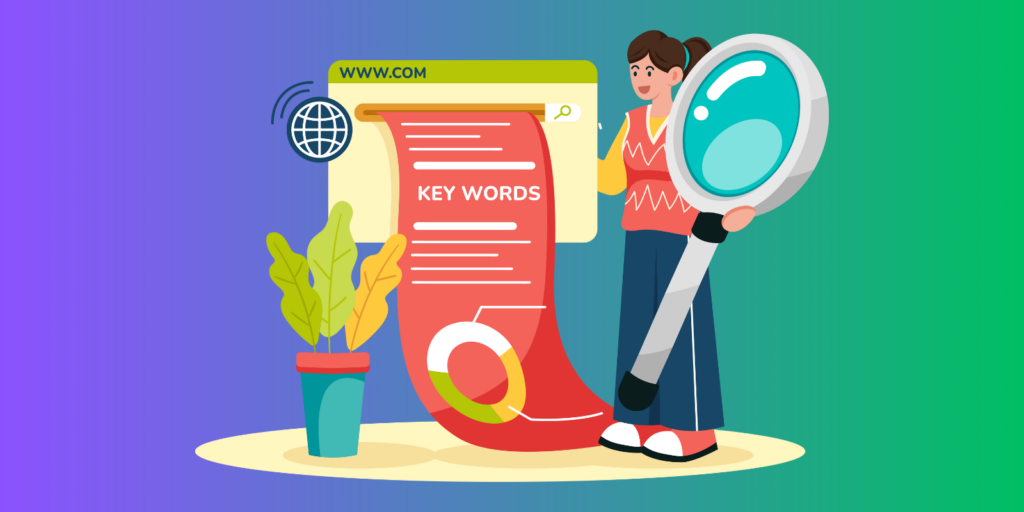
Keyword Research for Product Pages and Blog Content
Effective keyword research is the cornerstone of any Shopify SEO checklist. Start by identifying high-value keywords relevant to your products and industry. Use advanced tools such as Google Keyword Planner, Ahrefs, or SEMrush to find keywords that have a good balance of search volume and competition. According to a study by Ahrefs, 96.55% of all pages get no traffic from Google, underlining the importance of precise keyword targeting.
Once you have a robust list of potential keywords, strategically incorporate them into your product pages and blog content. On product pages, include keywords in titles, descriptions, and alt texts for images as optimizing these elements significantly improves on-page SEO. For blog content, ensure that your articles are not only keyword-rich but also provide valuable information that resonates with your audience. Content that aligns with search intent and delivers value is more likely to rank higher, as demonstrated by Google’s E-E-A-T (Experience, Expertise, Authoritativeness, Trustworthiness) guidelines. By prioritizing content that showcases these qualities, Google’s automated systems aim to highlight the most helpful and relevant information. This strategy not only boosts your ranking potential but also enhances user engagement and satisfaction, ultimately leading to higher conversion rates and customer loyalty.
SEO Content Writing
Creating valuable content that resonates with your audience while being optimized for search engines is an art. Balance keyword usage with readability to ensure that your content is engaging and informative. Over-stuffing keywords can lead to a negative user experience and penalties from search engines. Instead, focus on writing natural, coherent content that seamlessly integrates your target keywords. Use variations and related terms to avoid repetition and enhance the richness of your content. Furthermore, regularly updating your blog with fresh, relevant content can help maintain your site’s authority and attract repeat visitors.
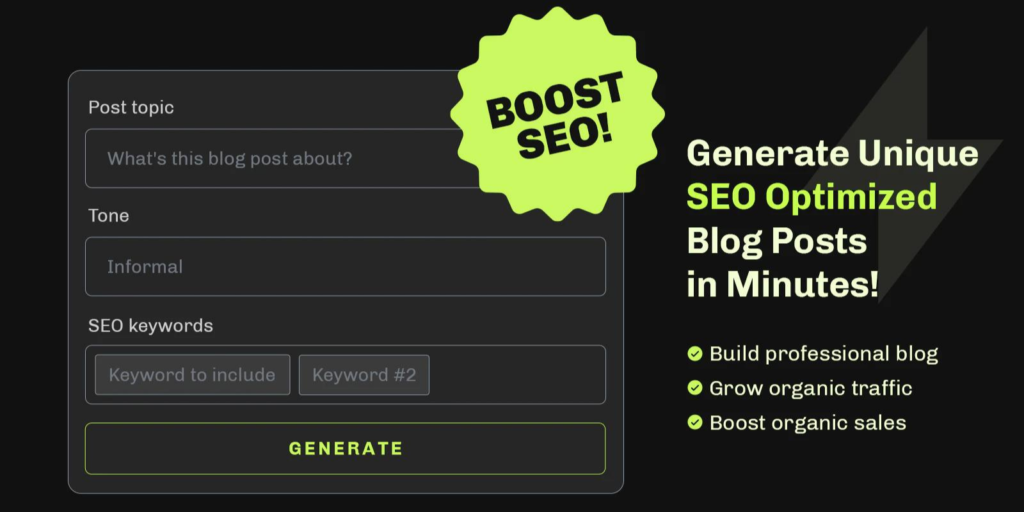
Essential SEO – AI Blog Writer
Not everyone is a writer, and many new businesses don’t have one on board yet. However, in the age of AI, blogs can be written with the help of advanced tools. Maintaining a consistent content strategy can be daunting, but tools like the Essential SEO – AI Blog Writer can significantly streamline the process. This AI-powered tool helps you generate SEO-optimized blog posts quickly and efficiently. By leveraging advanced algorithms, it ensures that your content is not only rich in keywords but also coherent and engaging. The Essential SEO – AI Blog Writer saves you time and effort, allowing you to focus on other critical aspects of your business. It can help you maintain a steady flow of content, which is vital for keeping your audience engaged and improving your search rankings.
Shopify SEO for Beginners: Conclusion
In conclusion, mastering SEO is essential for the growth and visibility of your Shopify store. Incorporating Shopify SEO tips into a solid SEO strategy not only helps you connect with the right audience but also keeps you competitive in the ever-evolving e-commerce landscape.
Don’t forget to check out our Shopify SEO Checklist provided below to ensure you’re covering all the important aspects of optimization to maximize your store’s potential and drive more traffic today!
Shopify SEO Checklist
- Optimize page titles and meta descriptions: Ensure they are concise, descriptive, and keyword-rich.
- Clean and readable URLs: Use keywords in your URLs for better recognition.
- Ensure crawlability and indexability: Check your `robots.txt` file and submit sitemaps to Google Search Console.
- Use alt texts for images: Improve accessibility and help search engines understand your visual content.
- Implement structured data: Enhance your visibility in SERPs with schema markup.
- Optimize site speed: Use tools to identify and fix issues that could slow down your site.
- Conduct thorough keyword research: Identify high-value keywords and incorporate them strategically in your content.
- Balance keyword usage and readability: Write natural, engaging content that includes your target keywords.
- Leverage AI tools for content creation: Use tools like Essential SEO – AI Blog Writer to generate consistent, optimized content.

